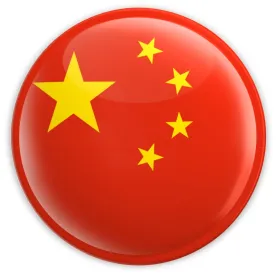In mid-June, the Supreme People’s Court released a draft of Certain Rules of Evidence in Intellectual Property Litigation (关于知识产权民事诉讼证据的若干规定(征求意见稿)) for comment. The draft contains 53 articles covering evidence production by the litigants; investigation, collection and preservation of evidence; exchange of evidence and cross examination; and verification and affirmation of evidence.
Some of the more relevant Articles include Article 3, 11, 12, 31, and 50.
Article 3, which deals with a shift in burden of proof for invention patents having method of manufacturing claims, stipulates that the patentee must provide evidence that:
-
The product manufactured by the accused infringer is the same product as the product manufactured using the patented method;
-
The products manufactured by the accused infringer are more likely to be manufactured through the patented method; and
-
The patentee made reasonable efforts to prove that the accused infringer used the patented method.
Only then, may the people’s court require the accused infringer to provide evidence to prove that the manufacturing method of the product is different from the patented method.
Articles 9 – 11 make it easier for litigants to provide foreign documents to Chinese courts without authentication. Article 9 provides that if evidence has not been authenticated, the providing party can expressly acknowledge authenticity and/or provide testimony of a witness to confirm authenticity and willing to accept the penalty for perjury. Further, in Article 10, the following evidence does not need authentication:
-
Evidence that have been confirmed by an effective judgment of a people’s court or an effective award of arbitration institution;
-
Publications, patent retrieval literature, etc. that can be obtained through official or public channels; and
-
Evidence whose authenticity can be verified by other ways.
Article 11 covers foreign power of attorneys and make the assumption the power of attorney will cover litigation procedures even if not expressly stated on the foreign power of attorney. Further, if there is a power of attorney but it does not give authorization for subsequent litigation procedures, the People’s Court will presume the client has authorized the attorney in the subsequent procedure.
Article 12 provides factors for deciding an evidence preservation request. The factors include:
-
Whether the evidence can be preserved by notaries;
-
The possibility that evidence will become unavailable or difficult to obtain in the future;
-
The influence on the facts to be proven if evidence becomes unavailable or difficult to obtain in the future; and
-
The effect of possible preservation measures on the possessor of evidence.
Note that Articles 12-22 do not require posting bond in pre-trial evidence preservation requests, which could encourage excessive and perhaps unnecessary evidence preservation requests.
Article 31 provides for the protection of evidence including trade secrets by preventing the parties from examining, extracting, duplicating or photographing the trade secrets – only the parties’ attorneys can examine the trade secrets.
Article 50 provides for factors in evaluating evidence of licensing rates when damages are based on the same. The factors include:
-
Whether the licensee and the licensor have any ownership interest in each other;
-
Whether the license fee has been paid and the actual payment method and whether the license contract has been actually performed and filed;
-
The claim, scope, method, period and region of the license.



 />i
/>i

